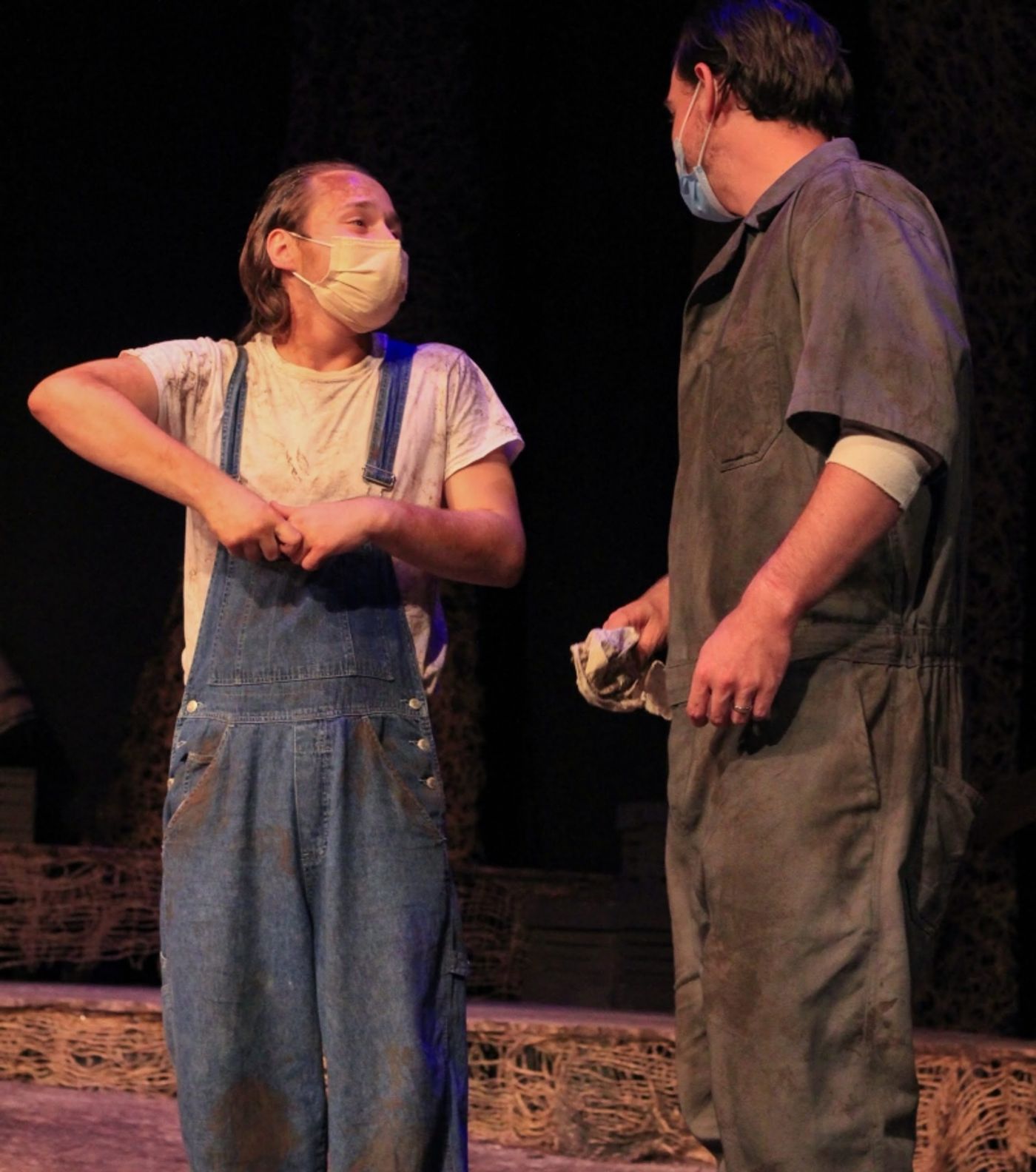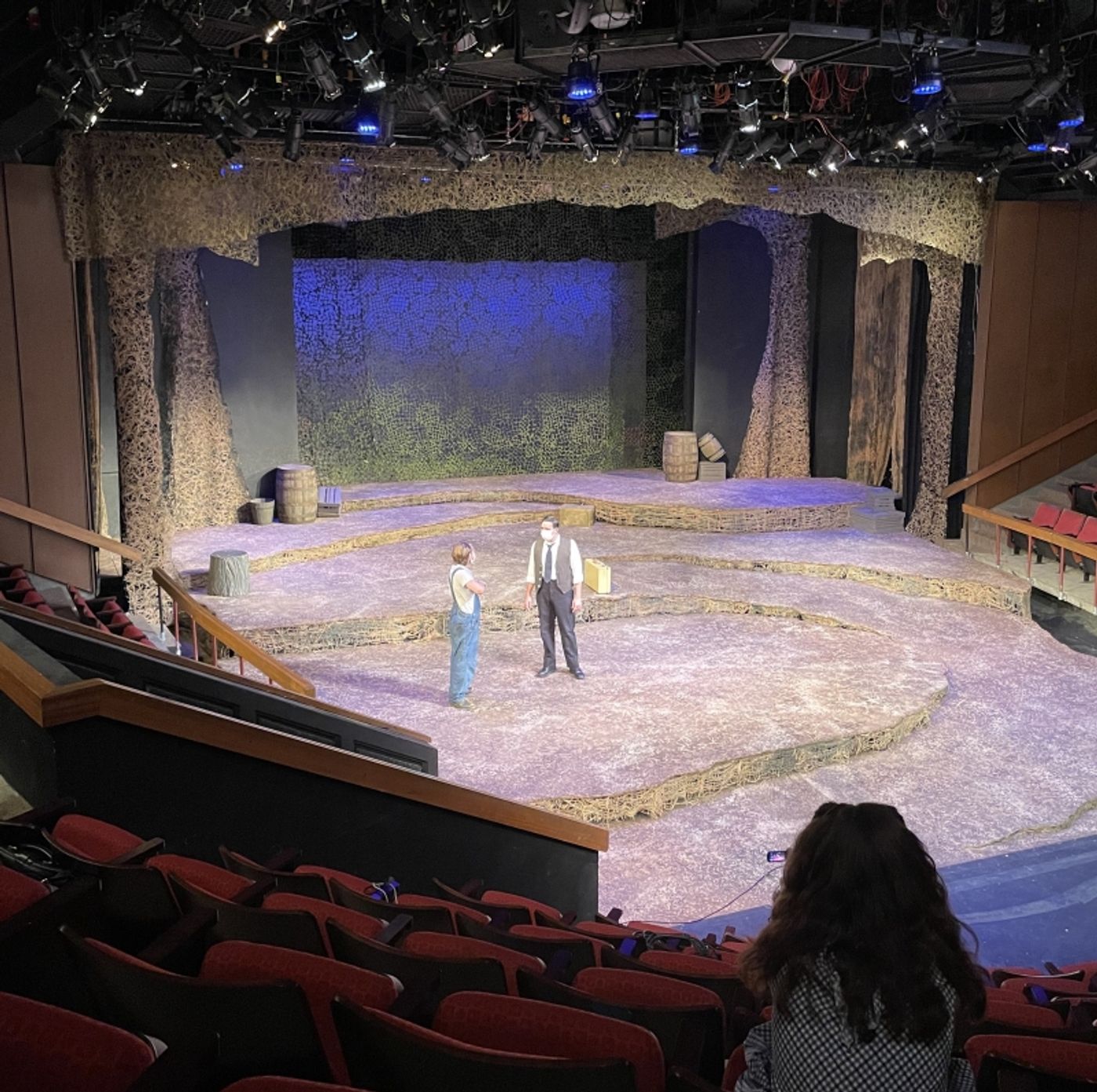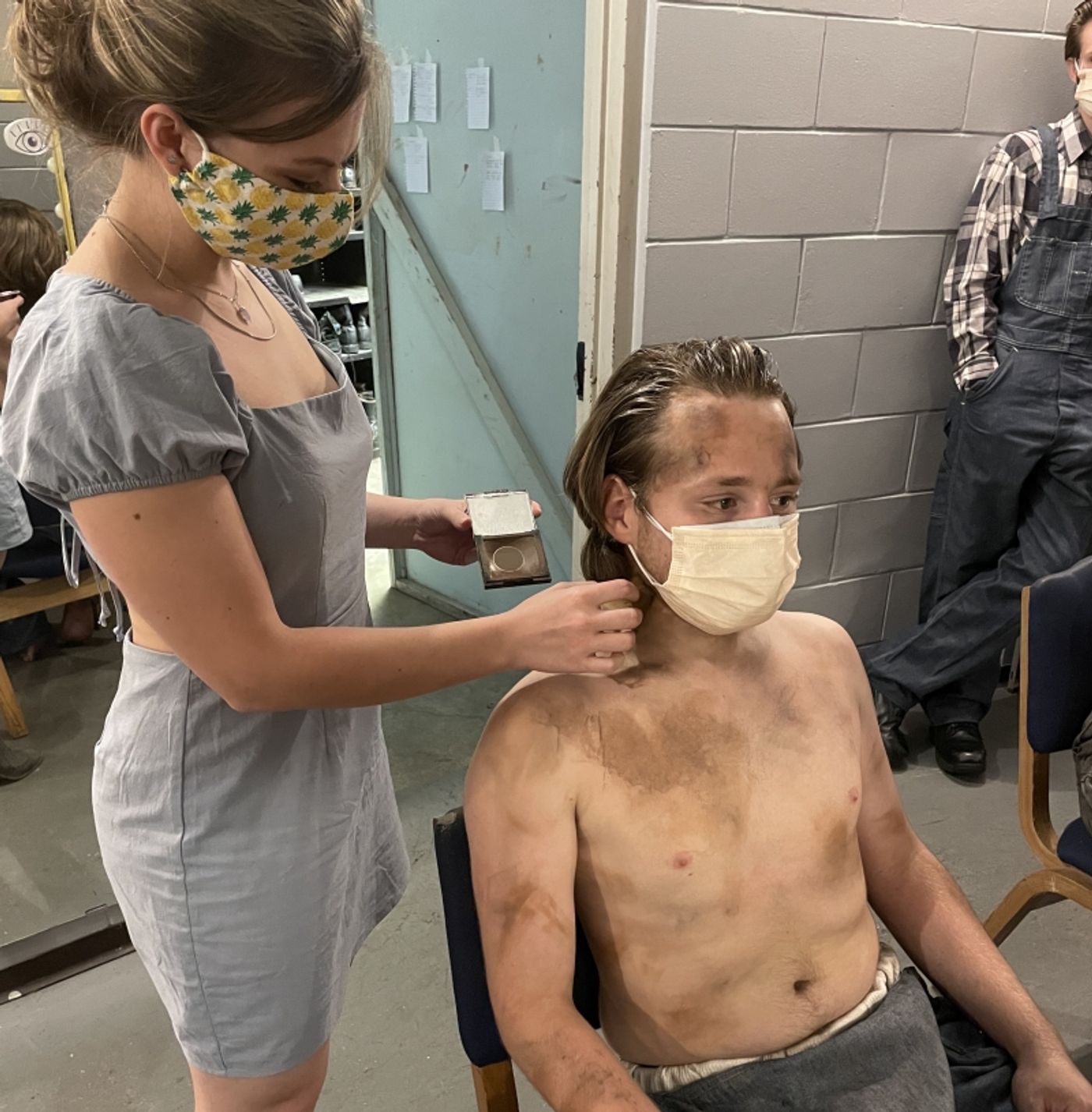Student Blog: Both Sides of the Coin
Professionalism isn’t just a clean resume and a memorized slate. Professionalism is also determined by the respect an actor gives to others.
A scenario so many of us can recognize: a performer snaps at the technician zipping up her dress for pinching her skin in the process. It is a stereotypical behavior of the grossly committed high school theatre kid, often emphasized in television and film. Behaving like this seems outrageous to those dedicated to the creation of art, and yet it is likely a more common occurrence than we think. The stereotype must derive from some truth, and the idea of this kind of behavior is permeating a world of creation is jarring. While it may not always be as catty as my high school dramatization, if behaving with superiority begins in young actors then it is possible it will translate into their future, professional life as well. Professionalism isn't just a clean resume and a memorized slate. Professionalism is also determined by the respect an actor gives to others. It would be impossible for a production to reach something of quality without every member on the creative team. I firmly believe that all performers should have a respect- an admiration- for the work done by technicians, and I think that is best achieved by stepping into the other side.
Having Technical Theatre Majors in addition to the Performance Majors means less use of performers in official, technical roles. But that does not mean performers aren't expected to learn some of the other side. Something I love about my curriculum is the inclusion of a practicum class for six semesters. That means all students in the department are expected to attend one light hang, light focus, workday, and strike each semester. This is only a taste of the work put in by the Master Electrician or Shop Foreman, but experiencing a fraction of their expectations puts things in perspective. My school discourages a divide between technicians and performers through this requirement- teaching both technical skill and respect for our peers.
.jpg?format=auto&width=1400)
up in the girls dressing room currently.
The shop organizes the costumes so the
actors can easily identify their pieces.
We have a yearly sign up for the season, the infamous "tech meeting", where the technicians gather and sign up for their desired positions for the upcoming shows. A production has so many working parts that despite the number of technical students, there are still some positions that need to be filled. These open positions are not completed by technicians being forced to accomplish too many different tasks, but rather by available performance majors. Sometimes these performers double up roles, like Jonah Hager and Anna Weaver tackling choreography, or Mackenzie Ross creating both a character and a set. However, often technical positions are a way for people who are not already involved with the production to join the team. I have used this outlet myself many times, to participate, work, and learn as much as possible.

play characters that don't mind getting dirty.
We covered their clothing in mud to give
the appearance of being heavily worn.
(PC: Anna Weaver)
I started my work here at Florida Southern as a freshman on run crew for Biloxi Blues. I was dressed in army green boot camp attire, and was responsible for wheeling on metal beds for all the bunker scenes. The production left me with noticeably stronger biceps, which were decorated with bruises the size of a beam from a metal bed frame, but more notably, I gained much more respect for my crewmates. The show was my first experience in a technical position and gave me some insight on the hard work put in by an official crew. With Biloxi, I had a duty that was necessary to benefit someone else's work. I was a small cog in a large machine that had to run. One bed missing on stage would have had quite the snowball effect! The experience made me look at every production I've been in, and has shaped my behavior in every one since. Doing the work personally made me recognize how much an actor depends on a well-oiled tech crew.
Later that year in The Sound of Music, I made sure to thank every crew member who helped me with great appreciation. Since I had just been on the other side, I understood how hard they were working just to make sure I could come onstage. One rehearsal I overheard one of our professors and the costume designer of the show, Mary T Albright, ask for assistance in the costume shop. She said any one could help, even just to iron if sewing wasn't an option. I hadn't used a sewing machine in about eleven years, but I was well enough accustomed with a needle and thread that I thought I could provide some assistance. I came in between classes and she put me to work sewing snaps on my costumes. I immediately fell in love with the costume shop and came by to help as much as possible. By the next semester, I was hired in the shop as a work study and happily sewed costumes until the pandemic put our work on hold. This semester I returned to the costume shop, just in time to try on my working costumes for The Drowsy Chaperone, make aviator hats, and pull furs. I've learned that being responsible for your own costumes increases the care you treat your costumes with. I recognize that it may be harder to appreciate work that you do not see, which is why I find personal technical experience to be so valuable. Noticing passionate work is much easier to do when you have done it yourself. Though they are different from having a specific role in a production, work study positions have also built skills, discipline, and regard within in.

only a few technicians watching the production
live, but even a few hands clapping add
to the atmosphere.
At the start of The Diviners, Mary T offered a position to me: Costume Supervisor. She explained that the position would require some minimal maintenance work throughout the production, but would allow me to see the production in person. I would otherwise have to watch the production virtually, so I jumped at the opportunity to see some live theatre safely. My work load in the shop stayed the same for the first few weeks of the production. I continued to complete tasks I was given by Mary T and the show's costume designer. I organized and cleaned, stitched and repaired, ripped and familiarized myself with all the costumes in the show. My official duties began during tech week, which included ironing, more repairing, gathering items still needed, and sharing instructions with the cast. Taking some responsibility for the image of everyone on stage was a bit overwhelming at first, but it revealed to me a real passion for costume design and construction. I quickly memorized what all was worn in each scene and took an extreme amount of notes, so that I could provide accurate responses to questions. However, tech week did bring some unexpected tasks as well.
.jpg?format=auto&width=1400)
naturally: dragged through the mud!
Because of all Jacob's movement
onstage, the mud easily flaked off,
making him look progressively cleaner.
Not only was I ironing like a mad woman before places, I was also assisting with hair and exploring the abilities of makeup. For those who do not know, The Diviners includes a character that has emotional trauma associated with water. Consequently, he does not often bathe. The character's aversion to touching water means he is covered in dirt: his clothes, his face, his body, and especially his feet. I was tasked with maintaining the dirt of the boy. My pre-show requirements now included smothering his clothes in charcoal powder and bronzer because pure mud did not show up as well as I would have liked on stage. I also cover him in dirt texture, and have him walking in makeup for the bottoms of his feet, to give the appearance of ten years of life and no baths. Another task I have to complete- one that is quite telling of the time- is passing out nude, disposable masks to the cast members to wear over their personal masks, creating an image of uniformity. Overall, my most important responsibility is making sure that costumes go on the actors smoothly. If something is working, not fitting, or breaking, it is my job to amend it. In our previous weekend of the show, the overalls worn by Jacob Little lost their closure. The hook had been adjusted to improve a transition made on stage, but the few tacks the hooks were reattached with were much more susceptible to ripping. At places for act two, Jacob turned to put on his strap and lost the hook. I ran him into the costume shop and stitched the quickest whip stitch of my life! After a short hold, act two resumed and Jacob's overalls stayed secured. A bit nerve wracking in the moment, the quick repair highlighted the symbiotic relationship of an actor and a technician. Technicians need actors to showcase their creations, and actors need technicians to help create the world. It is moments like this that demonstrate how precious every role in the theatre is. It also gave some new meaning to the idea of sewing someone into their clothes.

I start by layering Jacob with dark brown
bronzer, then stipple charcoal powder on top
for more texture.
Though I have been only a small part of the production's journey, my technical experience has taught me many things about the art of theatre. As I cover Jacob in makeup, I think about the ladies who helped me put on and style my wig in Drowsy, and how much I depended on their help. Repairing costumes on the "fix it list" reminds me of all the little repairs that I needed fixed throughout Cabaret. I was so much more appreciative of the people rolling out the set pieces in the Von Trapp house during The Sound of Music, because I had just learned how strenuous that repetitive sequence can be. There are many quality lessons to learned as a performer taking on technical positions. Not only do I think it is incredibly respectful to support peers as much as possible, but fulfilling a technical role also provides personal improvement. It is much easier to appreciate the work of the technicians in a show when there is an understanding of the expectations of that job. There is no useless role in theatre and that is proved by the crumble caused when just one job not being fulfilled. I appreciate the hard work and pure artistry that technicians demonstrate and I attribute my grand appreciation to my small exploration in the technical world. Doing a production exclusively as a technician is an experience that I highly recommend to all performers, and I am extremely grateful that my program has such an emphasis on learning both sides of the coin.
Videos


